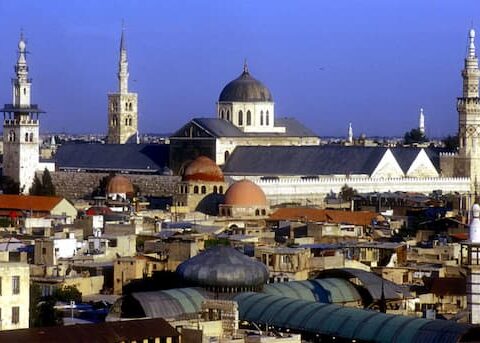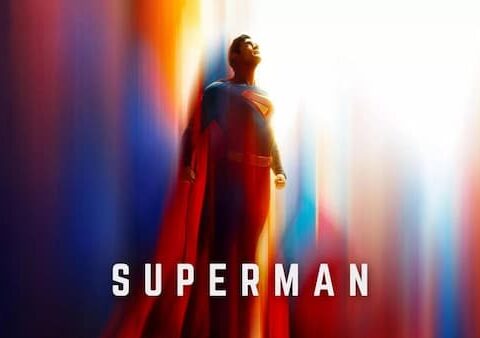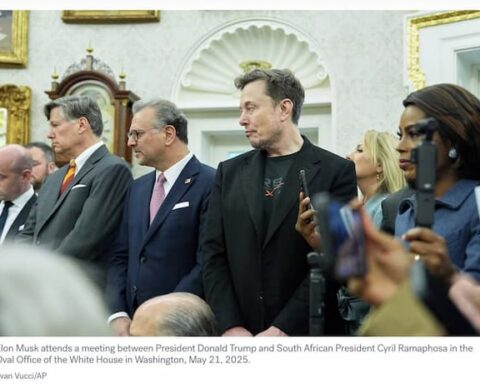Today the world will say its final goodbye to one of the greatest cultural figures – and probably the most charismatic – of the 20th century. And also the greatest sports star probably of all time.
So it is perhaps also an appropriate moment to travel back in time to a steaming hot night, October 30th 1974, in a soccer stadium and under the moon in the highly implausible setting of Kinkhasa, Zaire (now the Democratic Republic of Congo): to one of Ali’s greatest triumphs and what is broadly regarded as the greatest sporting event in history.
Popularly known as the ‘Rumble in the Jungle’, it was the strange, exotic setting in which Muhammad Ali would challenge world heavyweight champion George Foreman for the heavyweight title.
Journalists and intellectuals – Hunter S Thompson, Norman Mailer, David Frost, to name some – flocked to Zaire to bear witness to what was, even before it happened, regarded to be the fight of the century. Norman Mailer, who had been part of the press corps sent into the African heat to cover the event, wrote a book, The Fight (published 1975), immortalising the events. In addition, the events surrounding the fight, such as the musical festival staged in Zaire to coincide with it (featuring BB King and James Brown, among others), added to its cultural impact.
The 2008 film Soul Power focused mostly on this aspect of the event.
As Kevin Mitchell observed in his book, How To Think Like Muhammad Ali, Kinkhasa was “one of the most bizarre settings for any boxing match – with a thunderous storm advancing, in a stadium once used as an execution chamber for dissidents.”
Muhammad Ali speaking in 1975 about the significance of the setting: “When I first heard the fight would be in Africa, I just hoped it would go off right, being in a country that was supposed to be so undeveloped. Then, when we went down to Zaire, I saw they’d built a new stadium with lights and that everything would be ready and I started getting used to the idea and liking it.”
Before and after the fight itself, the images that resonate are those of Ali going out among the local people, establishing a connection with them. “Watching Ali in Zaire was wonderful,” physician Ferdie Pacheco recalls in this obituary from last week. “He’d go on walks into areas where I don’t think they had electricity, let alone television sets, and everyone knew him. To see the looks on people’s faces when they saw him, the love, the power he had over them, it was spine-tingling.”

The people of Zaire seemed to take Ali to their hearts, mobbing him and treating him like a national hero even though he had no connection to the country. Their popular chant, “Ali Boma ye!”, was actually a bit much when translated (it meant simply, and a tad harshly, ‘Ali, Kill Him!”).
By all accounts, Ali was a very endearing figure to the people of Zaire and his games effectively harnessed mass local support for him over Foreman. The older Ali seemed to find it much easier – or perhaps much more important – to establish this connection with people in Zaire; whereas the younger Foreman seemed to have found it harder to acclimatize himself to the country and climate.
Ali, however, had traveled to parts of Africa before, back in the days when he’d been encouraged to do so by Malcolm X.
Via the National Post, Gene Kilroy recalls “When we were in Africa, Ali was bigger than President Mobuto. I say this with all sincerity, if Ali had told those people, ‘I want to be your new president,’ he would have ended up being president.”
Kilroy remembers the social aspect of Ali’s visit to Zaire. ‘He always had time for the poor and powerless. That’s what I remember best. I remember a lady came by our camp and said her son was sick. Ali said: ‘We’ll go visit him.’ She took us to a leper colony. The staff would put the food down and walk away. Ali was soon lying down with the lepers, hugging them and talking to them. I took about 10 showers when we got back. Ali just said to me: ‘Don’t worry about it, God’s looking out for us, we are not going to get leprosy.’ He always had time for people. He was truly the people’s champion.”
There’s a good archive of original photos of Ali in Zaire here.
When We Were Kings, the famous 1996 documentary film directed by Leon Gast, managed to make the event even more legendary twenty years after it occurred, reinforcing a mythic aura around Zaire ’74 that is on a par with Woodstock. Gast spent 22 years editing all of the footage to finally make that extraordinary film. The Oscar-winning film charted the build-up to the fight and focuses heavily on this relationship Ali was able to build very quickly with the mostly poor people of Zaire.
In When We Were Kings, that element to the story is arguably more interesting than the fight itself.
Nevertheless, Ali and Foreman were there to fight – and the only reason we talk about Zaire in ’74 is because of that fight.

The novelist Thomas Hauser later cited the Ali victory in Zaire as a moment that “inspired more global joy than any athletic achievement in history.”
Not only was the global interest so high, but the stakes were also so high for Ali himself and for how people would regard or remember him. While subsequent portrayals of the event – from books and novels to documentary films and Michael Mann‘s 2001 movie Ali, starring Will Smith – have imbued it with a mythic, almost surreal aura, it was already so massively built up at the time, subject to such a media circus, and was so loaded with meaning and significance, that there is really no comparable contest.
I wasn’t even born until almost a decade later, and yet even I as a child was fully aware of Ali and the Zaire fight – because my Dad was still talking about it. I also had an Uncle who could recite entire Ali flourishes word-for-word.
The broader context of the Ali/Foreman fight included the story of how Ali had been stripped of his world title several years earlier for his refusal to be drafted into the Vietnam War.
He had been systematically denied a boxing license in every state and was stripped of his passport. Unable to fight from 1967 to late 1970, he was essentially robbed of what should’ve been the best part of his career (aged between 25 to almost 29). By 1971 the Supreme Court overturned his conviction, but Ali had already paid the price for his defiance. In reference to this cost, his trainer Angelo Dundee said way back in 2000, “One thing must be taken into account when talking about Ali: He was robbed of his best years, his prime years.”
“I had the world heavyweight title not because it was given to me, not because of my race or religion, but because I won it in the ring,” Ali himself had later said. “Those who want to take it and start a series of auction-type bouts not only do me a disservice, but actually disgrace themselves…”
When he regained his boxing license in 1970, he promptly launched himself into comeback clashes with Jerry Quarry and Oscar Bonavena, his eye firmly on regaining the heavyweight title from the otherwise unbeatable Joe Frazier. But Ali’s mission to win back a title he believed was wrongly taken from him didn’t succeed easily or quickly. Failing to take the title from Frazier, he was left having to fight other contenders for years before he would get another shot at the title.
In October 1974 the War in Vietnam was still going on, and people were killing and dying. But at this time the media around the world was instead focused on a different type of combat in Zaire.
And Ali was not expected to win.
Before Zaire, Foreman had destroyed all 40 of his previous opponents. He was considered ‘invincible’ from the moment he’d knocked down Joe Frazier – something Ali himself had failed to do since his comeback. At the time, Ali’s usual verbal antics, and indeed his enthusiasm for the fight, was seen by many as unwise and even dangerous. Ali was 32 and clearly not as fit as he had been in the past; most sports journalists considered him past his prime and practically embarking on suicide by agreeing to fight the younger, bigger, more powerful Foreman.
The majority of critics thought he had no chance. He was given odds of 40-1 with some bookmakers. Experts were frightened for both his safety and his reputation.
Ali showed no fear, and continued taunting and baiting his opponent in the weeks leading up to the event. Speaking to David Frost, he branded Foreman ‘The Mummy’ on account of his slow movement and dragging feet, and laid out the tactical basis for his own victory; ‘Float like a butterfly, sting like a bee; his hands can’t hit what his eyes can’t see.’ Watch that interview here.
Business manager Gene Kilroy was among those deeply worried, not just about Ali’s chances for victory, but for Ali’s very safety. “My biggest fear was suppose Ali got hurt. How good are the hospitals in Zaire? What would we have to do?”
____________________
The fight started at the ungodly hour of 4.00 am, Zaire time, in order for it to sync to American broadcast hours. Attendance in the stadium was around 60,000; but the global audience was estimated beforehand to stretch to around 2 Billion.
Ali had told his trainer, Angelo Dundee, that he had a ‘secret plan’ for defeating Foreman. But he didn’t specify what that plan was. But entire essays have subsequently been written about that fight and how Ali went about winning it. As early as the second round, Ali began to lean on the ropes and cover himself, letting the reigning champion punch him repeatedly in the body (a strategy Ali later dubbed the rope-a-dope).
As a result, Foreman spent his energy throwing punches that either did not hit Ali or were deflected in a way that made it difficult for Foreman to hit Ali’s head, while sapping Foreman’s strength due to the large number of punches he threw. This loss of energy was the key to Ali’s “rope-a-dope” tactic. Meanwhile, Ali took every opportunity to shoot straight punches to Foreman’s face. When the two of them were locked in clinches, Ali employed tactics like leaning on the giant Foreman to make force him to support Ali’s own weight.
Along with this, Ali was taunting his opponent, daring him to hit him more; a provoked Foreman tried to do just that, expending more energy trying to hit Ali.
After several rounds of this, Foreman was getting tired out, leaving him more and more vulnerable to Ali’s quick jabs (or ‘stings’, if we honour the famous butterfly/bee line). At the start of the fourth round, and again near the end of the fifth, Foreman – despite seeming to dominate – started to stagger under Ali’s quicker, more precise combinations.
Ali continued to taunt him; “They told me you could punch, George!” By the end of the fifth round, Foreman looked worn out. Footage of the fight shows Foreman hitting Ali with endless powerful blows (some blocked, but others impacting). While most of these hits are to the sides and the kidney area, some are also to the head; but this seemingly had minimal effect (at the time at least – it was later revealed that Ali suffered health problems for weeks after and was urinating blood).
In the end, Ali did the impossible – beating Foreman by knockout, putting his opponent down just before the end of Round Eight.
10 years after knocking out Sonny Liston to win the heavyweight title as Cassius Clay, the 32 year-old Ali had now won the title for the third time and would assure himself of a permanent place in history.
Ali’s victory in Zaire wasn’t just about the victory of an older man over a younger man or an underdog over the ‘invincible’ favorite, but it was about Ali taking back a world title that he’d had unjustly robbed from him over his moral objection to a war – a war that was still going on at that precise moment.
No one had thought Ali could win; only Ali himself had boasted poetically of his imminent triumph, having apparently not doubted his own destiny for a moment.

“I thought Foreman was killing him,” Angelo Dundee later said, “but now we know what happened, which is why he was the greatest. It was beautiful.”
In a lot of people’s minds, one of the people most remembered in regard to the Zaire fight – after Ali and Foreman, of course – is the late David Frost. The man who would later be most famous for interviewing Richard Nixon (in 1977) was already at this point a fairly well-known personality on American TV, particularly for a British presenter.
Frost being involved in the commentary in Zaire on that night ranks as one of the most fortuitous things in broadcasting history. But it made sense; Frost had famously interviewed Ali in Deer Lake in the build-up to Zaire. Ali told Frost prior to the fight, “if you think the world was surprised when Nixon resigned; wait til I whip Foreman’s behind”.
Frost, fittingly enough, was the first broadcaster to reach Ali’s dressing room, just minutes after Foreman had been knocked out. As the story goes, before Frost could even ask an opening question, Ali beat him to it, asking a question first: “Am I the greatest of all times?” he asked the English television star.
“I think everybody out there watching now will say you proved it,” Frost affirms.
Asking then if he is presently live on television, Frost confirms that he is. Ali then says, right down the camera, “Everybody stop talking now. I told you, all of my critics, when I beat Sonny Liston that I was the greatest of all times. I told you today, I am still the greatest of all times.”

Foreman would later call on Ali more than once for a rematch, but Ali would decline. Foreman himself made an unlikely comeback, regaining the world heavyweight championship at age 45 — at that time, the oldest man ever to win the title. Despite all the antagonism before and during Zaire, the two fighters would become great friends. “We fought in 1974, that was a long time ago. After 1981 we became the best of friends. By 1984, we loved each other,” he later said. “I am not closer to anyone else in this life than I am to Muhammad Ali.”
When When We Were Kings won its Academy Award in 1996 (twenty years after the event), Ali and Foreman joined the filmmakers at the ceremony. Ali, by this time, physically struggling with his condition, had to be helped up the steps by his former opponent.
Foreman later said of Ali: “He is one of the greatest human beings I’ve ever met and I pray for him every day because I know that when he dies there will be a little less love in the world.”
__________________
Meanwhile back in 1974, a monsoon arrived an hour after the fight that disabled satellite communications between Zaire and the rest of the world. Ali and his wife Belinda returned to N’Sele with a police car ahead of them and Ali’s entourage travelling behind. “It was like the return of a victorious army,” the physician, Pacheco, has recalled (source). “All through the jungle, people were lining up along the road with children in their arms, waiting for Ali in the pouring rain.”’
Mere hours after winning the sporting event of the century and being crowned world champion again, Ali – probably the most famous human being on the planet – was out on the streets, performing magic tricks for Congolese children.
__________________
__________________





Reblogged this on TheFlippinTruth.